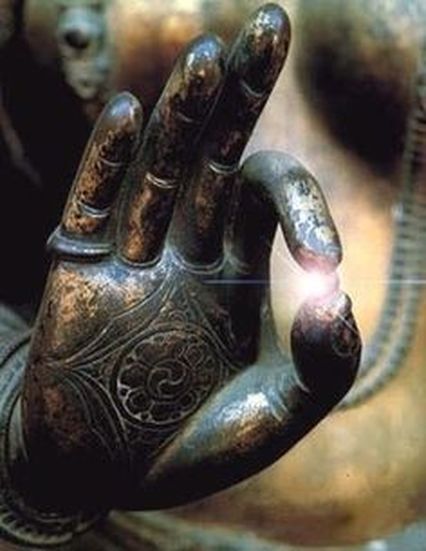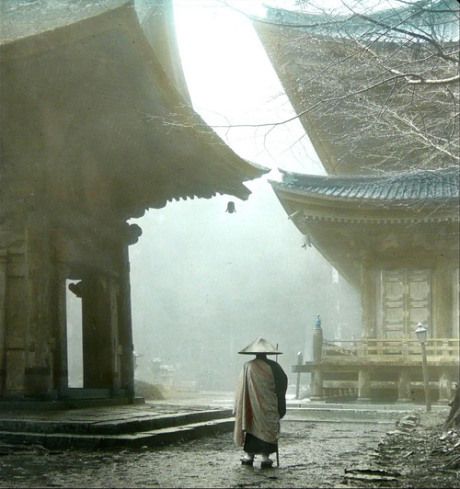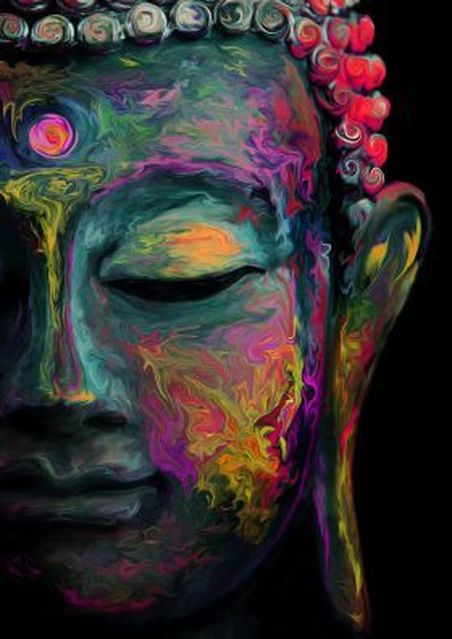Author: YEJO Circle
For a Buddhist practitioner,
Life starts with the Morning Bell, ends with the Evening Drum is a serene, cut-off from material, sensual & emotion attachment
and a simplistic & poetic way of life.
For a normal attached social person,
(before the full awareness of its essence, and the ability to observe) temple life might be challengingly simple,
the mental chattering will become too noisy and the “ Boringness and Loneliness” makes life nervous and recklessly unsettled.
However,
For the hearts of practice, persistent truth seekers and walkers towards enlightenment of truth,
temple provides the means to tame the mind; regular body connection, motion & stillness balanced life, and cultivated the serenity within.
Life starts with the Morning Bell, ends with the Evening Drum is a serene, cut-off from material, sensual & emotion attachment
and a simplistic & poetic way of life.
For a normal attached social person,
(before the full awareness of its essence, and the ability to observe) temple life might be challengingly simple,
the mental chattering will become too noisy and the “ Boringness and Loneliness” makes life nervous and recklessly unsettled.
However,
For the hearts of practice, persistent truth seekers and walkers towards enlightenment of truth,
temple provides the means to tame the mind; regular body connection, motion & stillness balanced life, and cultivated the serenity within.
One Day life in Buddhism Temple:
1, Getup with Morning Board Clapping at 04:00 to 05:00 AM according to Season
Every morning around 4 o’clock, monk on duty will clap the morning board, all monks will get up, make the bed, doing the washings, and the big Bell will start, finally the drum will start indicating the morning class will start.
2, Start Morning Class
Three times of Bells totally 108, indicating the ending of the 108 sufferings of life. After the morning drum all monks will be in the hall ready for the morning class.
3, Worshipping of the Buddha
With the indication of the bell, the morning class starts first with worshiping of the Buddha. It requires the totality of body-mind-spirit integration, with complete focus on each movement and worshipping mind, imagining melts into Buddhahood with the worshipping process and removing self importance and attachment on self and purified with compassion.
On the side effect, the not fast but full range movement is a good process for the body health in the morning, and give the capacity to observe the body during the exercise.
4, One Hour Chanting of the Sutra
Two “Wood Fish” starts the chanting of the morning, with all the important Sutra chanting it takes around 1 hour. The chanting purifies the mind at the start of the day and clarifies the mind with the pointing towards the truth.
Life exists in itself with its pure unity truth – there is no inherent meaning attached to each individualized life. However – as all human beings (and animals) wish for happiness and not to suffer – the purpose of individual life may be said to end that suffering starts with the illusion of the individuality and the seeking of meaning of the individuality itself.
5, Breakfast Around 06:30 to 07:00 O’Clock
The bamboo clapping informs the readiness of breakfast,
and all will go to the diner room, with the big wood fish claps starts the breakfast.
Before the eating, a chanting to remind the practice of awareness will start each meal.
Discipline, full awareness, unwasting, mindfulness will be practice in the meal, and the breakfast will be finished with a chanting.
6 Meditation:
Sitting meditation for the Chan Buddhism Temple, Chanting for the Pureland Jingtu Buddhism Temple, as the two major Buddhism type developed in China from Han Dynasty. Or Ceremony Services to the local community.
For the temple that serves the local community with different types of ceremony, especially during the festival periods, then these ceremonies will be a big practice for the monks.
Meditation is Key
A key belief in all Buddhist groups is the importance of meditation. Without calming our mind, and examining our mind’s nature and its beliefs, we can never reach enlightenment. Doing this sitting down is called meditation, and doing this while we undertake everyday activities is called mindfulness.
Everything is based on mind, is led by mind, is fashioned by mind. If you speak and act with a polluted mind, suffering will follow you, as the wheels of the oxcart follow the footsteps of the ox.
1, Getup with Morning Board Clapping at 04:00 to 05:00 AM according to Season
Every morning around 4 o’clock, monk on duty will clap the morning board, all monks will get up, make the bed, doing the washings, and the big Bell will start, finally the drum will start indicating the morning class will start.
2, Start Morning Class
Three times of Bells totally 108, indicating the ending of the 108 sufferings of life. After the morning drum all monks will be in the hall ready for the morning class.
3, Worshipping of the Buddha
With the indication of the bell, the morning class starts first with worshiping of the Buddha. It requires the totality of body-mind-spirit integration, with complete focus on each movement and worshipping mind, imagining melts into Buddhahood with the worshipping process and removing self importance and attachment on self and purified with compassion.
On the side effect, the not fast but full range movement is a good process for the body health in the morning, and give the capacity to observe the body during the exercise.
4, One Hour Chanting of the Sutra
Two “Wood Fish” starts the chanting of the morning, with all the important Sutra chanting it takes around 1 hour. The chanting purifies the mind at the start of the day and clarifies the mind with the pointing towards the truth.
Life exists in itself with its pure unity truth – there is no inherent meaning attached to each individualized life. However – as all human beings (and animals) wish for happiness and not to suffer – the purpose of individual life may be said to end that suffering starts with the illusion of the individuality and the seeking of meaning of the individuality itself.
5, Breakfast Around 06:30 to 07:00 O’Clock
The bamboo clapping informs the readiness of breakfast,
and all will go to the diner room, with the big wood fish claps starts the breakfast.
Before the eating, a chanting to remind the practice of awareness will start each meal.
Discipline, full awareness, unwasting, mindfulness will be practice in the meal, and the breakfast will be finished with a chanting.
6 Meditation:
Sitting meditation for the Chan Buddhism Temple, Chanting for the Pureland Jingtu Buddhism Temple, as the two major Buddhism type developed in China from Han Dynasty. Or Ceremony Services to the local community.
For the temple that serves the local community with different types of ceremony, especially during the festival periods, then these ceremonies will be a big practice for the monks.
Meditation is Key
A key belief in all Buddhist groups is the importance of meditation. Without calming our mind, and examining our mind’s nature and its beliefs, we can never reach enlightenment. Doing this sitting down is called meditation, and doing this while we undertake everyday activities is called mindfulness.
Everything is based on mind, is led by mind, is fashioned by mind. If you speak and act with a polluted mind, suffering will follow you, as the wheels of the oxcart follow the footsteps of the ox.
7, Lunch and No Eating after Lunch
Lunches are punctual around 11:00 AM with the same indications from the dining room.
The process is same as the breakfast and same as a practice and reminding of the practice along the eating process, and ends with a chanting.
8, Meditation as in the Morning
9, No Dinner at Evening, however, for the weak and unhealthy, a meal is provided to support their recovery.
10 Evening Class 16:00 or 19:00 PM
After or before the dinner, (as scheduled with different temple) there will be the evening class with the chanting, similar to the morning class.
11, 21:00 Stillness and Silence
Starts with the drums, then the bells, followed at the end board claps indicates the time to be in stillness and sleep.
Following the clapping of the boards, temple life melts into the night…
Lunches are punctual around 11:00 AM with the same indications from the dining room.
The process is same as the breakfast and same as a practice and reminding of the practice along the eating process, and ends with a chanting.
8, Meditation as in the Morning
9, No Dinner at Evening, however, for the weak and unhealthy, a meal is provided to support their recovery.
10 Evening Class 16:00 or 19:00 PM
After or before the dinner, (as scheduled with different temple) there will be the evening class with the chanting, similar to the morning class.
11, 21:00 Stillness and Silence
Starts with the drums, then the bells, followed at the end board claps indicates the time to be in stillness and sleep.
Following the clapping of the boards, temple life melts into the night…




